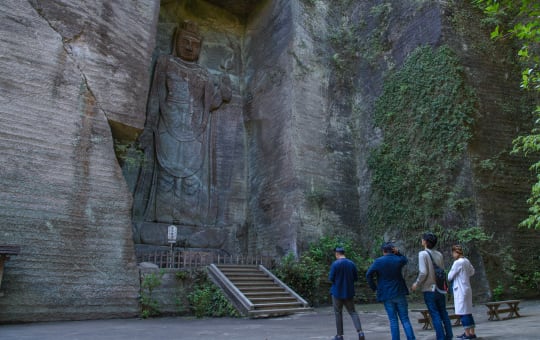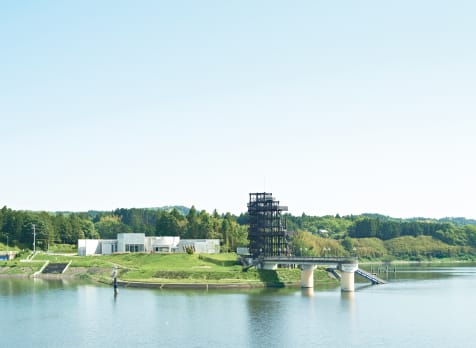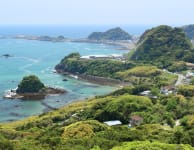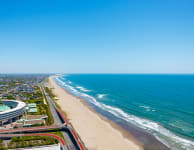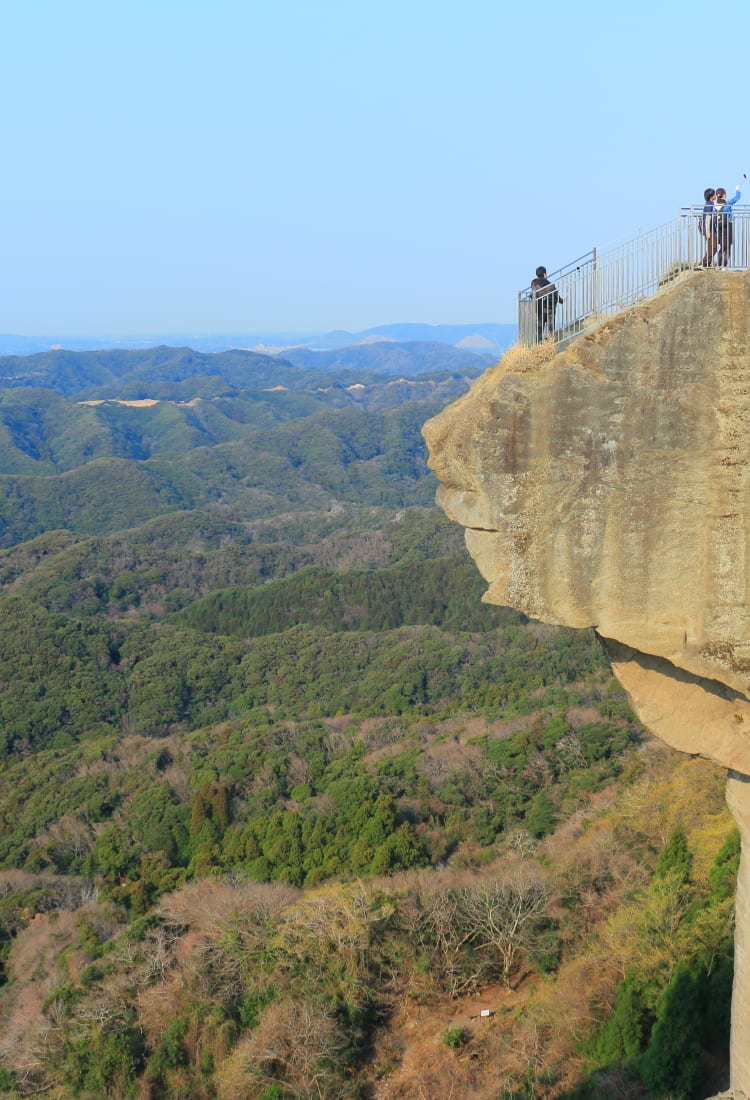

CHIBA Kisarazu & Around From traveling underwater to peeking into the pits of hell
From traveling underwater to peeking into the pits of hell
Kisarazu, on the Boso Peninsula , boasts some unusual attractions. It's the starting point of the Aqua Line, a highway that takes you under the bay. Hikers will love Mt. Nokogiri , one of Chiba's highest mountains, where you can peek into the pits of hell. The area is home to one of Japan's largest Buddhas, as well as one of the Tokyo area's major outlet malls.
Don't Miss
- Umihotaru, a unique highway rest-stop on the ocean
- Mt. Nokogiri, with sweeping views of the landscape
- Farmland adventures at Mother Bokujo
- Kisarazu's Mitsui shopping outlet
How to Get There
The Kisarazu area is accessible by train from Tokyo, or the Aqua Line tunnel-bridge combination which traverses Tokyo Bay.
By train, Kisarazu and most of the area's attractions are accessible via the Uchibo Line from Soga Station at the end of the JR Keiyo Line.
A more interesting way to visit is to take a bus trip on the Aqua Line, a highway that goes partially under Tokyo Bay, or the Tokyo Bay Ferry. Both depart from Kanagawa Prefecture on the west side of the bay.
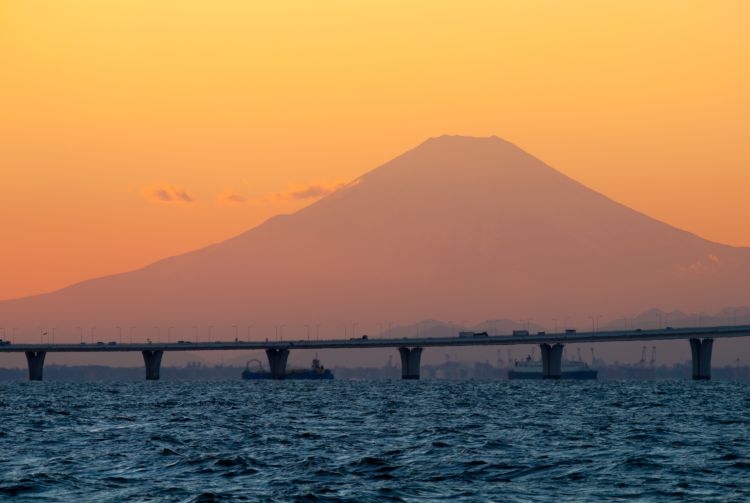
The world's only ocean-located highway rest stop
Umihotaru is an artificial island that serves as the mid-point on the Aqua Line. Meaning "sea firefly" and surrounded by the sea, this rest stop features restaurants, shops, views of the bay and other facilities.
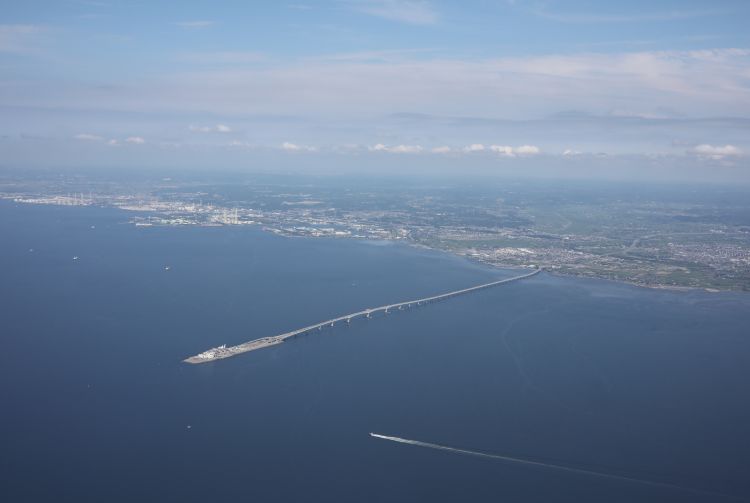
Aerial view of Umihotaru
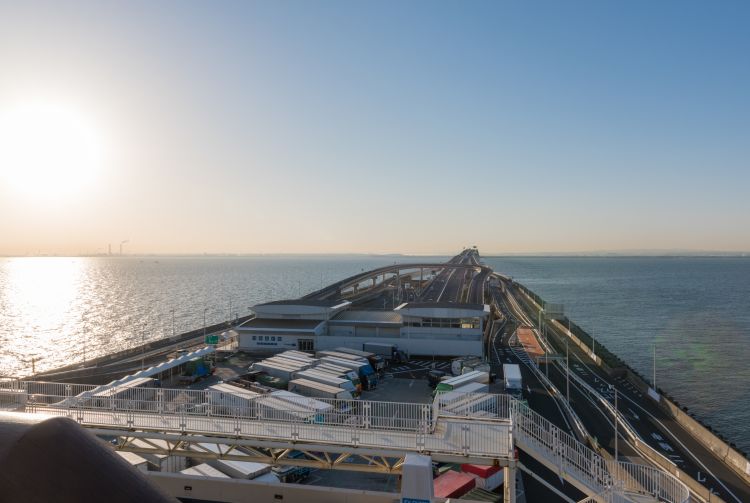
Umihotaru
Look into the pits of hell from Mt. Nokogiri
Mt. Nokogiri is a mountain in the Boso Peninsula that stands at 329 meters. It gets its name from its shape, which resembles a Japanese saw or nokogiri. A relatively low mountain, the hike to the top is not strenuous, but the view is spectacular; from the top, you can see the Boso Hills and Tokyo Bay. The observation point is known as Jigoku Nozoki, meaning "peeking inside hell." While there's nothing hellish about the views, looking out from the peak can make you feel like you are falling.


A Buddha of marvelous proportions
The western side of the mountain includes the sprawling Nihonji Tenbodai temple complex, an Important Cultural Property of Japan. This vast, picturesque Zen temple was built 1,300 years ago and is still used to train monks today.
The temple complex features one of Japan's largest statues of Buddha. The 31-meter stone statue was carved out of the mountain's granite in 1783 and is twice as high as the famous Buddha at Kamakura's Kotokuin Temple.
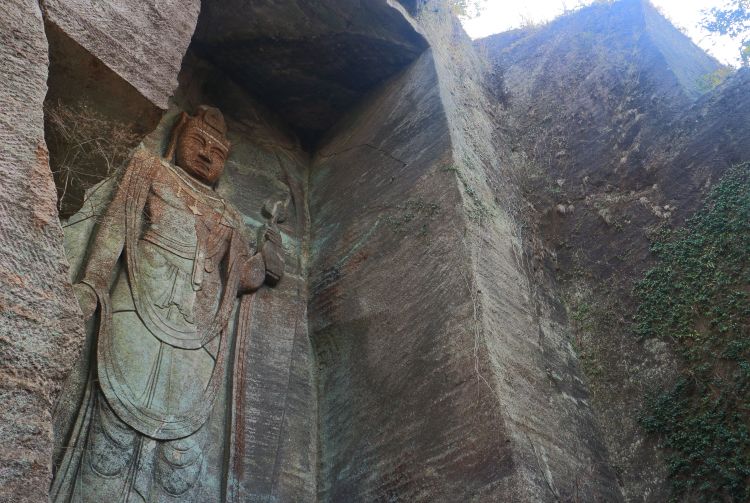
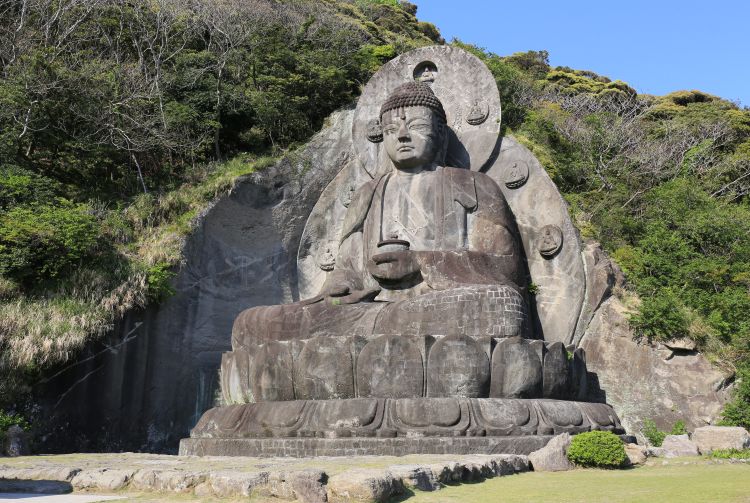
Furry friends at Mother Bokujo
Mother Farm is a delightful animal park right in the center of the Boso Peninsula . It is home to critters of all shapes and sizes, has plenty of fun activities for kids and gorgeous views of the nearby hill country.
At the top of one hill is a small amusement park with roller coasters, a Ferris wheel, a carousel, and a cycle monorail.
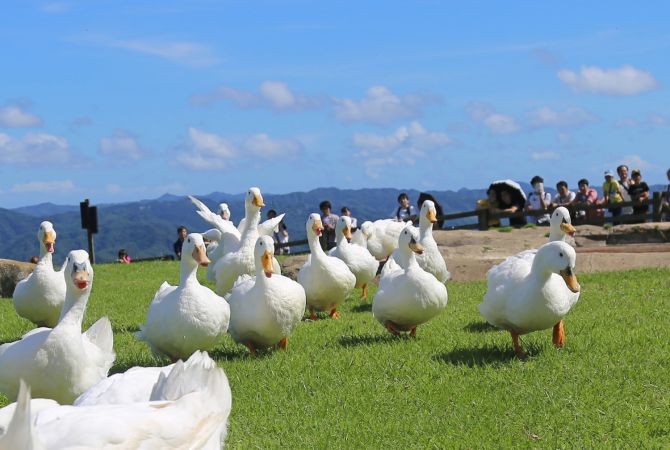

Shopaholics rejoice
Mitsui Outlet Park features a large number of brand name shops, and is the biggest outlet mall in the Tokyo area. Its proximity to Tokyo and easy access via the Aqua Line make it a popular shopping spot for Tokyo folks as well as Chiba locals.

Seasonal colors on the Boso Peninsula
Tucked away in Chiba's Boso Peninsula lies the lush and rugged Yoro Valley and Yoro River. This deeply forested area offers gorgeous natural scenery, most notably in the fall when the leaves change color.
Ride historic railways
The Kominato Railway extends 39 kilometers from the west coast at Goi to the town of Otaki. The old-fashioned trains are not electrified but run on diesel. The oldest of the trains has been in use since 1962. The scenic route goes through fields of flowers, rice fields and quaint towns.

A creative hub
The Ichihara Lakeside Museum is located near Takataki Lake and surrounded by lush greenery. It is considered the creative hub of the region, focusing on modern art with displays, workshops, educational activities, and cultural activities.
One of the area's most important cultural attractions is the Hishikawa Moronobu Memorial Museum, a museum honoring the artist of the same name. Hishikawa Moronobu is a master of ukiyo-e, Japanese woodblock prints.





















































